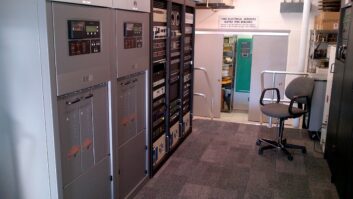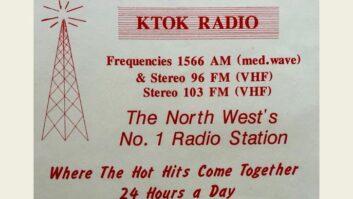The author is communications director of MMTC.
Over the course of several decades, the Multicultural Media, Telecom and Internet Council’s transactional arm, MMTC Media & Telecom Brokers, has worked to ensure that diverse voices and entrepreneurs are included in the nation’s rapidly evolving and intensely influential communications industries.
MMTC, founded in 1986, and its brokerage, founded in 1997, have negotiated dozens of media and telecom deals totaling approximately $2 billion in asset value. The firm has distinguished itself as the only minority-owned, full-service media brokerage in the United States and is one of the leading media brokerage firms in the nation.
Since its founding, the brokerage has received 10 full-power AM stations donated by iHeart Radio (formerly Clear Channel), Mega Communications and Entercom. MMTC has used these donations to incubate and train minority and women entrepreneurs to manage and operate broadcast stations — a pathway to ownership for many.
“We’re providing a unique service to the industry and the listening public by directly enabling the next generation of multicultural and women broadcasters to get their start in station ownership,” stated MMTC President and CEO Kim M. Keenan. “No one else is doing that.”



Edward Distell, Darnell Washington and Kongsue Xiong This is a conversation with three radio owners who got their start through MMTC’s brokerage:
• Edward Distell, owner and general manager, KCKX(AM)/KZZD(AM), Salem, Ore.
• Darnell Washington, former owner, KTGF(TV), Great Falls, Mont., currently pursuing a radio acquisition
• Kongsue Xiong, co-owner and general manager, KFXN(AM), Minneapolis, Minn.
Q: What made you decide you wanted to own a radio station?
Ed Distell: I have run radio clusters for years, but there was always a corporate safety net available and I wanted something more challenging. This time, it is really all about what I can do as an owner.
Darnell Washington: It seems that television ownership has evolved into more of the “big players only” type of business, and the American dream of owning a local television station and developing the ownership into a small group is almost gone. I hope to take a small radio group and make an impact on the country.
Kongsue Xiong: As an educator, I strongly believe in education and empowerment for my Hmong people to move forward with the mainstream society. The power of communication in radio broadcasting is the key motivation for me as an owner. Radio is a door-opener for entrepreneurs to share their business with the community, and also it is a valuable resource for the community itself.
Q: How did you become involved in radio? What is your background experience?
Distell: I started working part-time in radio during my college days. After college and service in the military, I went back to radio because I really and honestly enjoyed the business. I have run multiple clusters in several markets, and I have done just about every job at the station, from cleaning the production room to VP/market manager, prior to becoming an owner.
Washington: My first involvement with radio station management came when our former company took on the management of three radio stations in a small market via local management agreements. We managed these stations for about 1-1/2 years and had a blast. Before the agreement ended, we had a great time and set the market on fire!
Xiong: I first became involved with radio in 2000 on a nonprofit project with a subcarrier radio station as a way to help the Hmong community. I have also volunteered to assist with movie production projects, theater projects and other creative arts projects. I saw radio’s value as a powerful tool to promote education and business and began to search for a standard radio station that I could own and operate. Finally, MMTC gave me the opportunity to achieve my mission.
Q: Tell us about your interaction with MMTC and what your process was for acquiring a station.
Distell: I found out from a friend that a station could be available through MMTC. I made a phone call, and it happened. Seamlessly.
Washington: MMTC is a constant source of opportunity for minority broadcasters. My interaction with them has helped our companies acquire three different properties. For us, they have been a “one-stop shop” in helping with the FCC process of ownership, guiding us through the step-by-step plans of making a deal happen, and bringing additional investors to the table that we would not have been able to reach.
Xiong: I experienced many challenges with my subcarrier radio station, and I always looked for new opportunities through friends and professionals. An acquaintance in western Wisconsin who owned two AM stations directed me to MMTC’s website, where I saw that the organization was dedicated to helping people of color succeed in broadcasting. I immediately contacted MMTC to help me keep track of the status of KFXN AM 690, which I knew was owned by Clear Chanel and had been off-air for nearly a year. MMTC let us know that the station might be donated and that further details were forthcoming. Thanks to MMTC, we now own a standard radio station to help our Hmong community. I call it “a dream come true.”
Q: What difference have you made in your community as a broadcaster? What accomplishments are you most proud of when it comes to serving your community?
Distell: I do not want to attribute a lot of accolades to my efforts within the community. Throughout the years, I have taken a few subjects to heart, including education, women’s rights, alcohol and drug abuse, and children’s hospitals (St. Jude and Miracle Network). These, coupled with serving on a few local boards, are among the things I hold dear, and I hope I was able to make a difference.
Washington: When we acquired our first television station, it was a deal that had a lot of hair on it! The station was losing its NBC affiliation in six months, and we had to come up with a plan to keep the station going in a small market. We were able to secure a “supplemental affiliation agreement” to air Fox programming and introduce the market to the Fox Network as a local affiliate. We were highly successful in doing that. During our 2-1/2 years of operation, we had a great time and proved that we could run a small group with two television stations and three radio stations under our belt. The community loved our stations, and we gave the larger broadcast groups competition in the market for five years. We also had a small news operation that led the market in response time, and we provided quality entertainment that the community would never have had otherwise.
Please understand that minority ownership in local radio and television is extremely important to our local markets. Minorities provide a large part of the nation’s entertainment, music, news and information. However, until investors open their pockets to minority broadcasters, the country will be held back in these same areas of entertainment. And, we will be missing thresholds that we can reach a lot faster otherwise.
Xiong: My life and the Hmong community completely turned around. It is very easy to communicate to the community and promote businesses, and the people are now well informed on the importance of basic education in this society and beyond. The local Hmong community was living a blind and deaf existence in an information age with no TV or radio to guide it. Now, my Hmong community is living with pride in a daily life that is full of information and entertainment. I thank God for finding MMTC and its role in helping me build my dream business and positively influence the Hmong community.
Comment on this or any story to [email protected].







